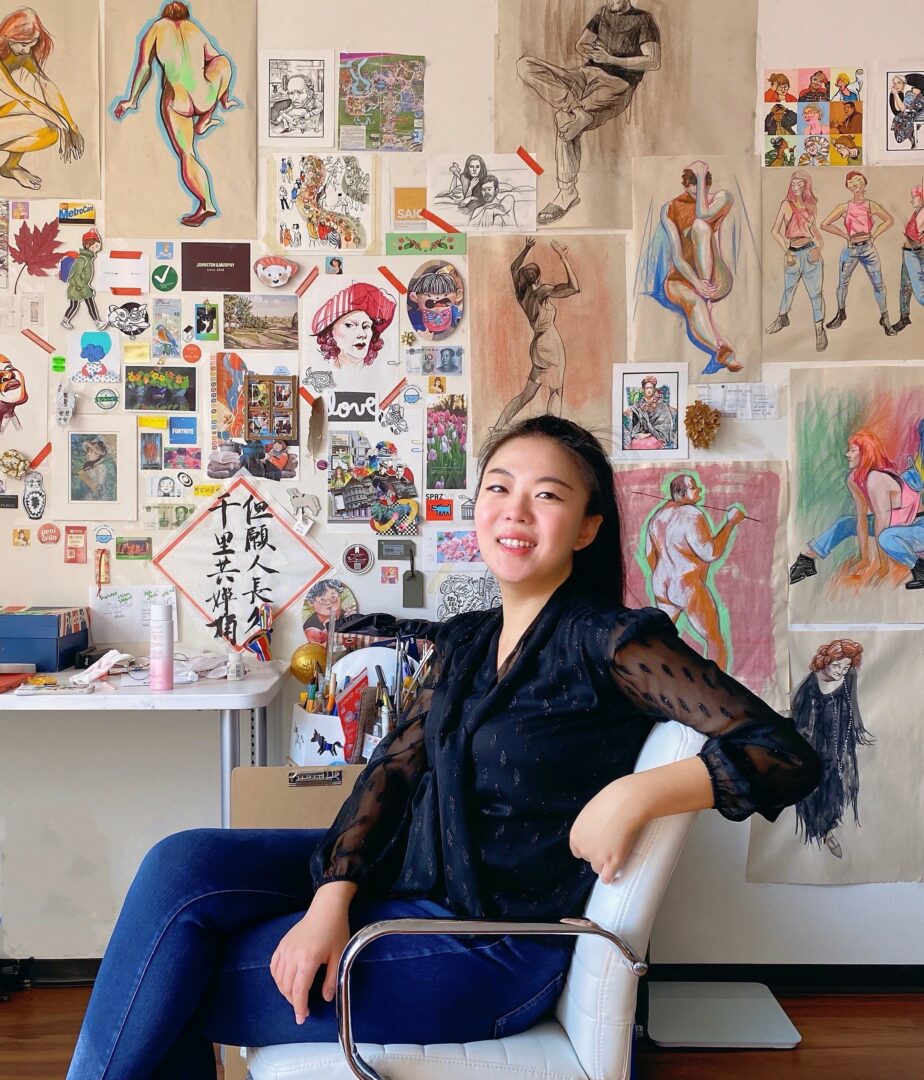Chuchu Wang shared their story and experiences with us recently and you can find our conversation below.
Hi Chuchu, thank you so much for joining us today. We’re thrilled to learn more about your journey, values and what you are currently working on. Let’s start with an ice breaker: What is a normal day like for you right now?
A normal day for me usually starts around 8 a.m. I make myself a cup of coffee and have a simple breakfast before diving straight into work. Since I’m a freelance illustrator, I don’t have to go into an office—I work from home on my own projects. My mornings often begin with replying to emails and discussing directions with clients, and then I move into focused drawing time.
By the afternoon, I take a break for lunch, and sometimes I’ll head to a local café to sketch. Working from home all the time can feel a bit isolating, so being around people—even just chatting with my regular barista—gives me a nice sense of social life.
In the evenings, I usually teach kids’ art classes here in Jersey City, from Monday through Saturday. After class, I head back home for dinner and wrap up my day. That’s pretty much the rhythm of my life right now.
Can you briefly introduce yourself and share what makes you or your brand unique?
I’m Chuchu Wang, a freelance illustrator based in New York. My work blends storytelling with thoughtful, playful visuals, and I’ve been fortunate to collaborate with clients such as The New York Times, The Washington Post, BBC, Elle, and The Hollywood Reporter.
This October, my first children’s book Rus and Moose will be published in North America. I’ve always loved creating for children, and working on picture books has brought me even closer to the way young readers think and imagine. At the same time, I’ve been teaching kids’ art classes in Jersey City for the past two years. These two practices really complement each other: when I talk with children in class, I learn about their perspective and how they see the world, which inspires me to make picture books that truly resonate with them. And because I spend so much time immersed in their imaginative world through illustration, my students often feel especially connected and joyful in class. It’s a wonderful cycle that makes both my teaching and my creative work more meaningful.
Okay, so here’s a deep one: Who saw you clearly before you could see yourself?
For me, it was my grandmother—my mother’s mother—who saw me clearly before I could see myself. When I was in middle school, she believed I should pursue art seriously, even though it was an unconventional path in China at the time. She discussed it with my parents, who were hesitant. In China, there’s a common perception that kids who prepare for the art entrance exams do so because they can’t succeed in traditional academics. But my situation was different—I was doing well academically and could have gone to a top high school in my province. My parents worried that my art skills might not be strong enough to support a career, and they didn’t fully understand the field.
My grandmother, however, was a very perceptive and wise woman. Born in 1940s China, she was a rare female university graduate in chemistry and later became a professor. She recognized something in me that even I hadn’t seen yet. She felt I shouldn’t follow the same crowded path as everyone else, but instead choose the road that truly suited me.
Looking back, I’m so grateful she pushed me in that direction. Without her, I might never have believed in myself enough to imagine leaving a small city in northeast China to eventually become a freelance illustrator in New York. She gave me the courage to pursue a future that once seemed impossible, and I carry that gift with me every time I pick up my pencil.
When you were sad or scared as a child, what helped?
When I feel sad or scared—like when a teacher once told me my grades weren’t good, or when classmates laughed at me—I try to put things into perspective. Even as a child, I developed a habit of asking myself: “Will I remember this in 20 years? Will it still matter to me then?”
The very first time I thought this way was actually in kindergarten. I can’t even recall the exact situation anymore, which proves the point—but I remember telling myself that in 20 years I definitely wouldn’t remember that moment, so I shouldn’t let it weigh on me.
That mindset has stayed with me ever since. Whenever I face setbacks, I remind myself that the future me probably won’t even think about it, so there’s no need to overthink now. Everything eventually passes, and holding onto that thought helps me keep moving forward.
So a lot of these questions go deep, but if you are open to it, we’ve got a few more questions that we’d love to get your take on. What would your closest friends say really matters to you?
For me, one of my close friends gave “closure” a very meaningful shape. In a conversation we once had, they reminded me that as someone who had the chance to study or live abroad, we are already in a position of privilege. And because of that, we should carry ourselves with more humility—never with superiority or a detached attitude toward the world.
That perspective really stayed with me. It wasn’t that I ever thought of myself as above others, but the way my friend put it was so clear and kind, and it made me reflect deeply. I admire how grounded and compassionate they are, and I feel I’ve learned something important from them: to stay humble, to keep perspective, and to meet people and situations with sincerity.
Before we go, we’d love to hear your thoughts on some longer-run, legacy type questions. What will you regret not doing?
I think the one thing I would truly regret is not choosing illustration. My path wasn’t straightforward—I didn’t study illustration as an undergraduate. My first degree was in architectural design, and later I pursued a graduate degree in public administration. It wasn’t until my second master’s program, when I was 23, that I finally committed to illustration.
Before that, there was a lot of uncertainty and self-doubt. Even though I studied at a well-known art university in China, my major was design, not illustration, because my family felt pure art would make it difficult to find stable work. The software and skills I learned back then were all geared toward building and architecture, and none of it connects to what I do today.
That winding journey made the moment I chose illustration even more meaningful. If I hadn’t made that decision, I know I would still be doubting myself—maybe working in a field unrelated to art, watching others draw with a sense of envy, telling myself that perhaps I never really had the talent. That, to me, would have been the real regret.
So I’m deeply grateful that, at that turning point, I was brave enough to choose illustration. It’s the decision I’ve never once looked back on, and it continues to give me certainty and fulfillment every day.
Contact Info:
- Website: https://chuchuwang.art/
- Instagram: https://www.instagram.com/chuchuwang_art?igsh=OGQ5ZDc2ODk2ZA%3D%3D&utm_source=qr
- Linkedin: https://www.linkedin.com/in/chuchuwangart
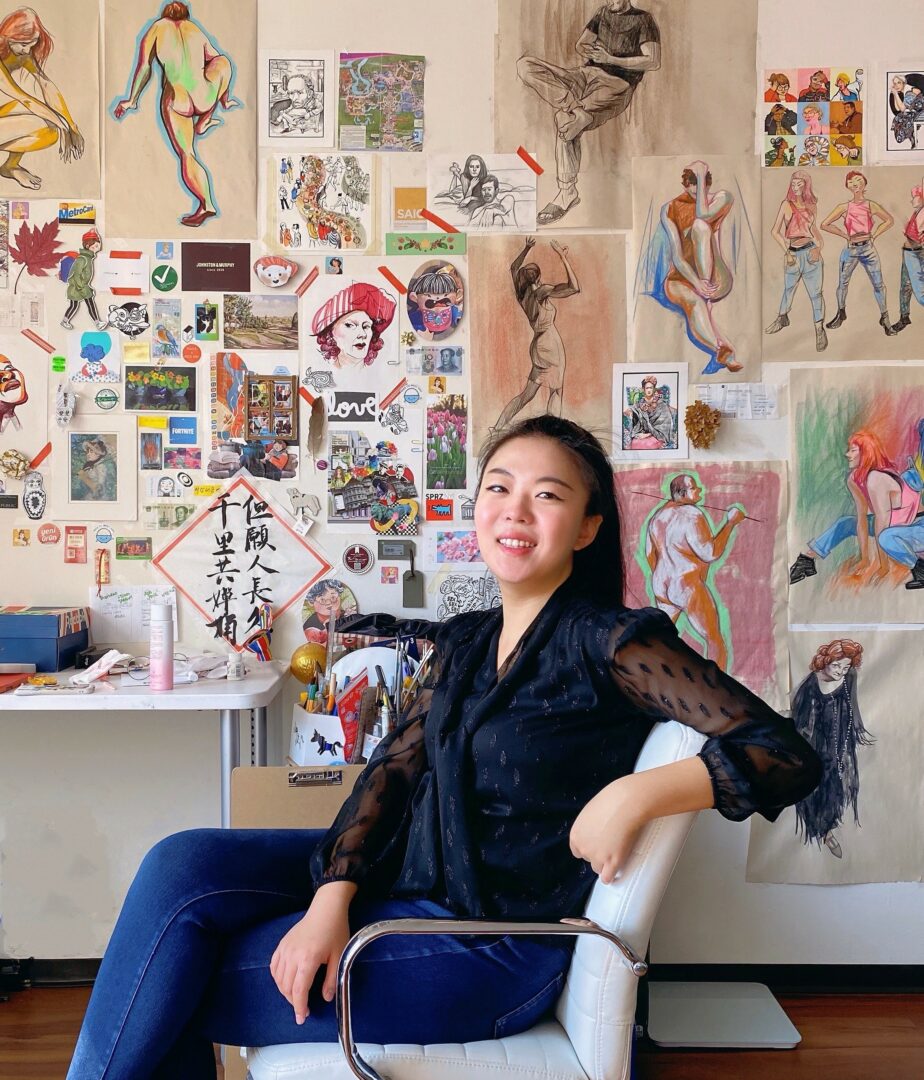
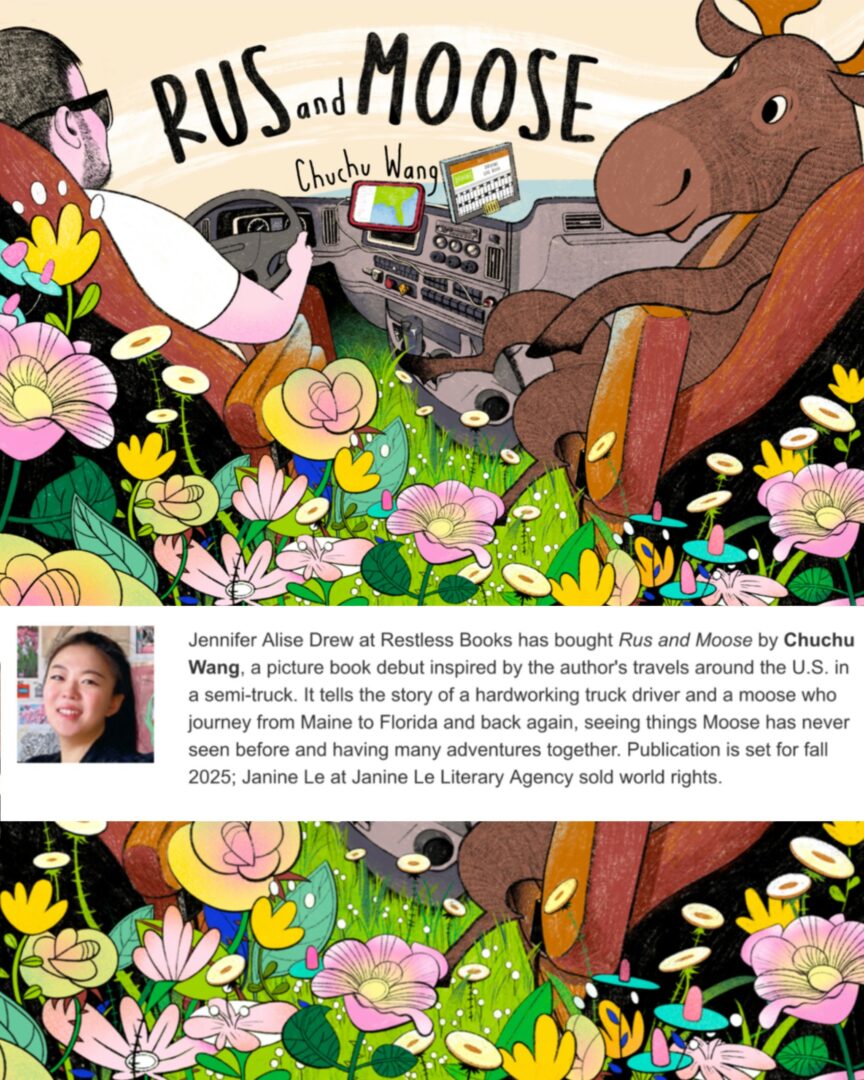
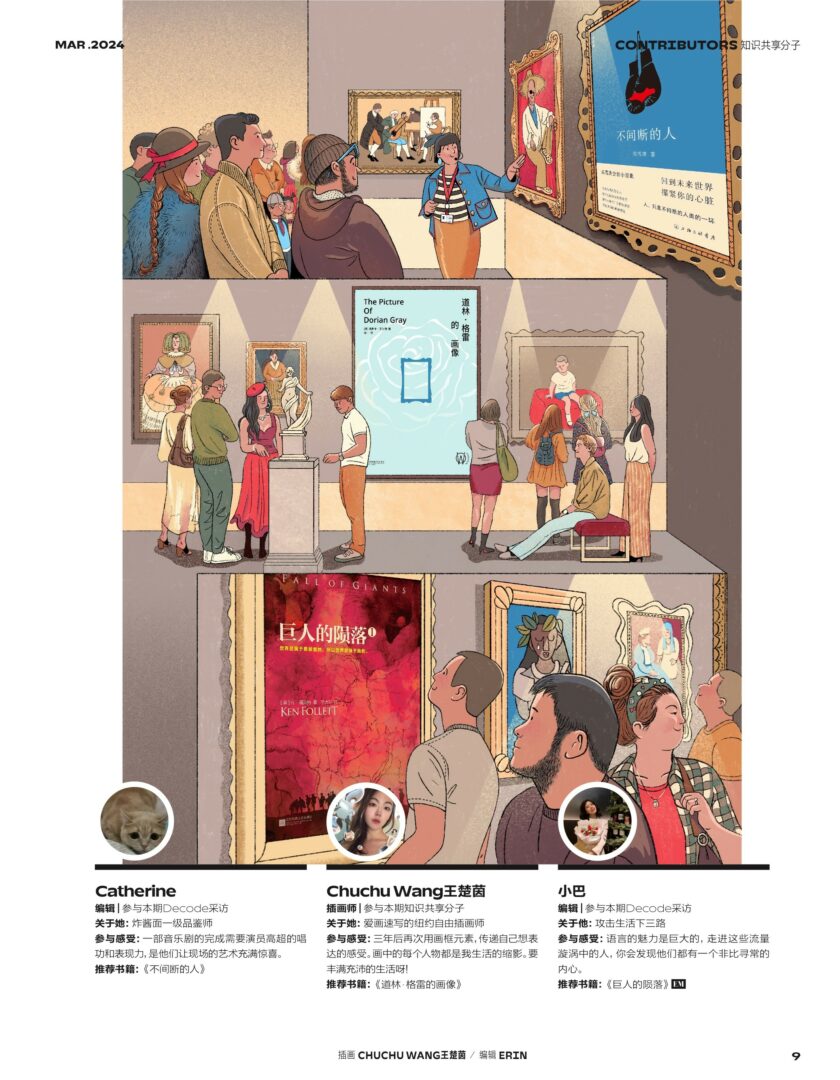
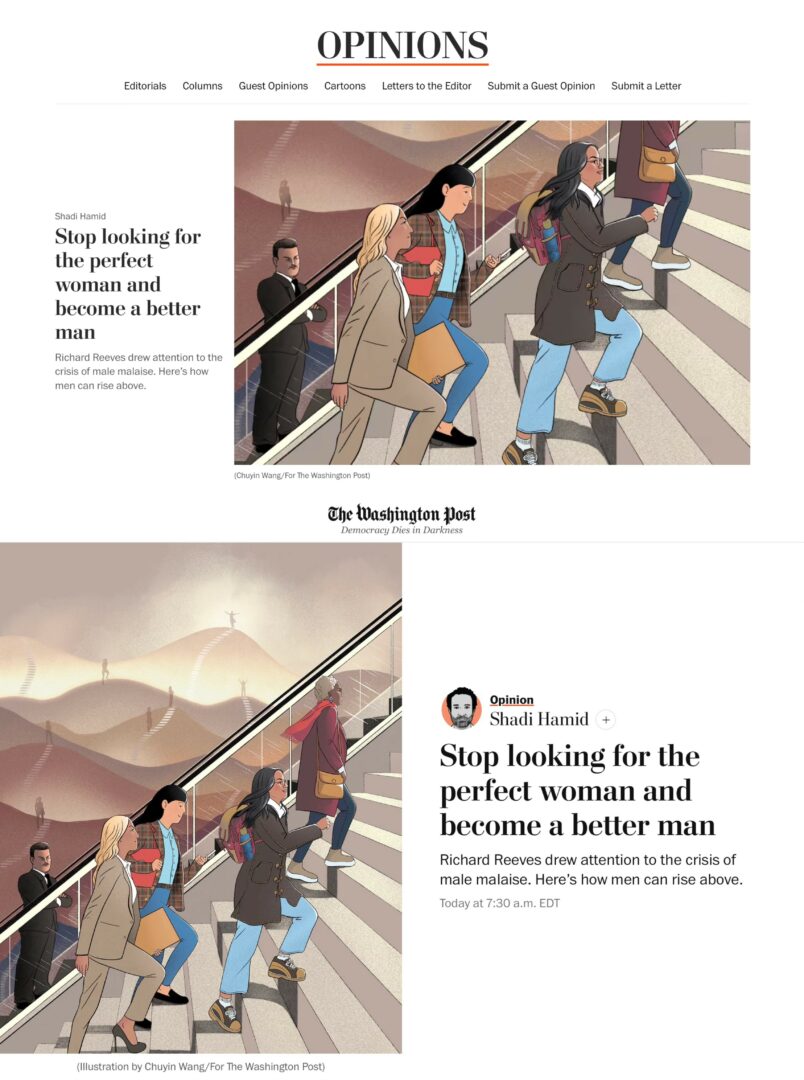
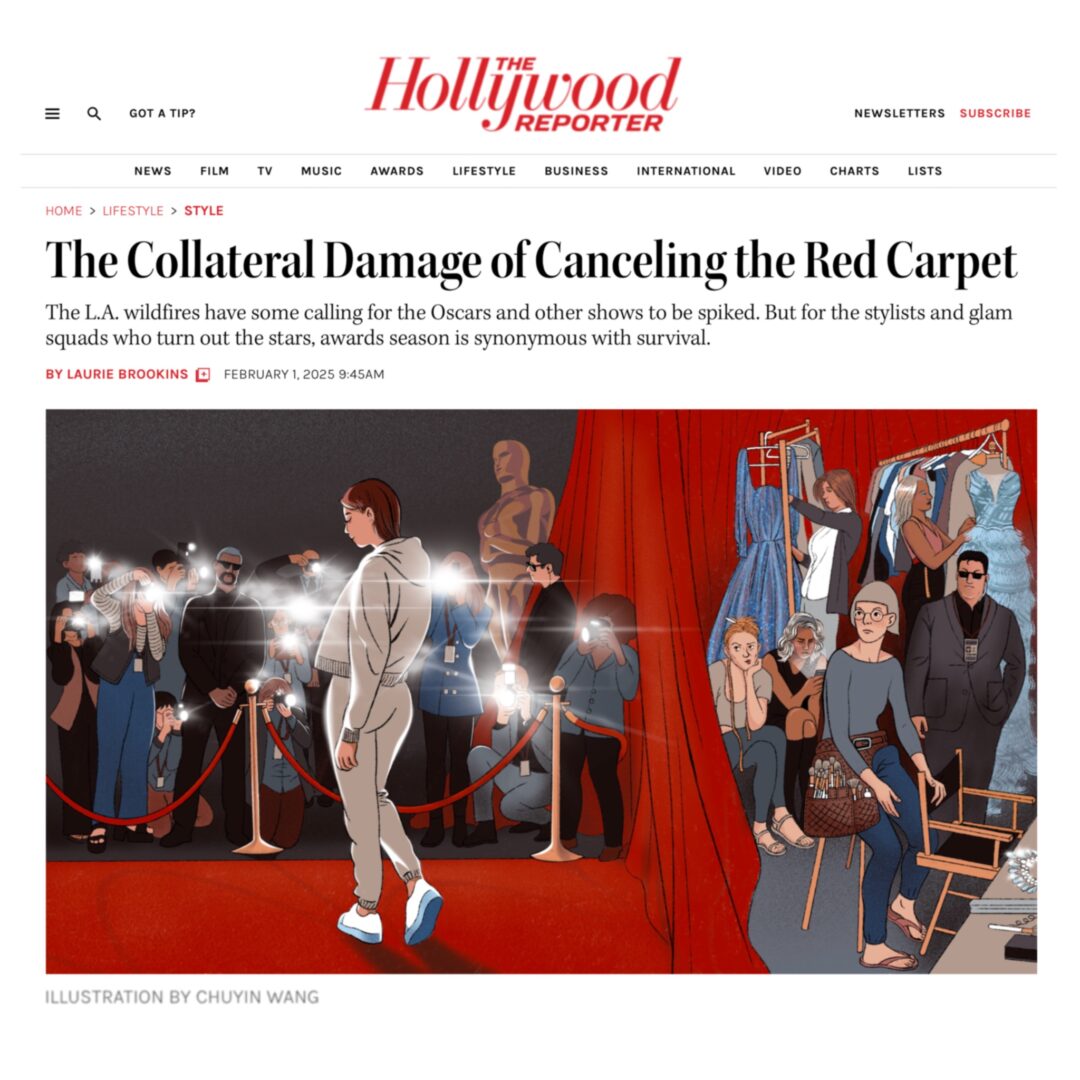
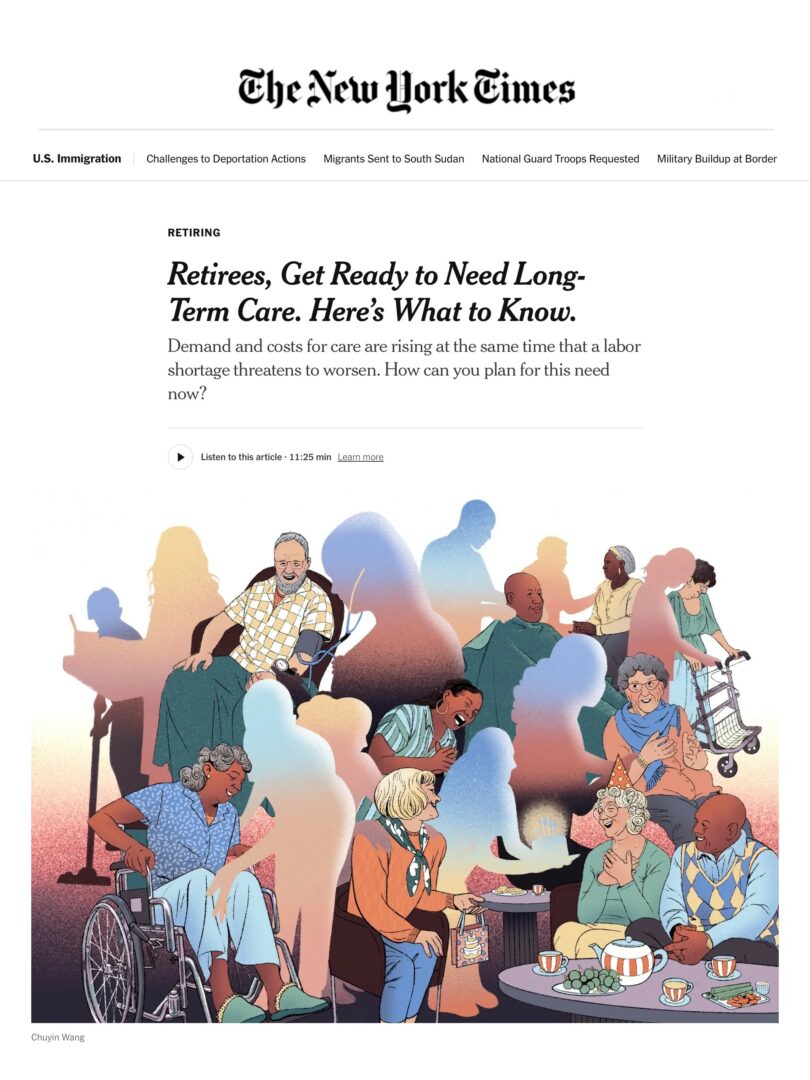
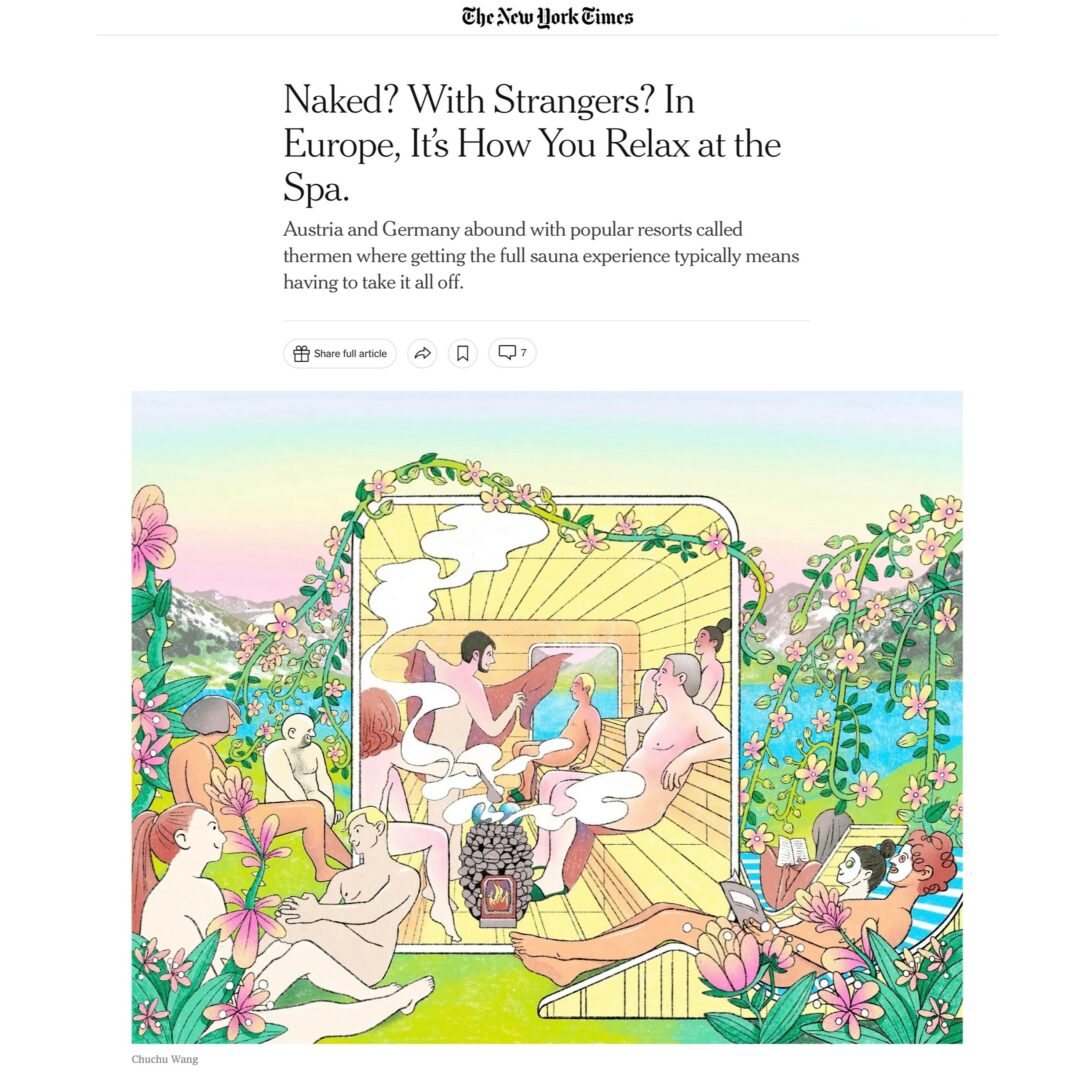
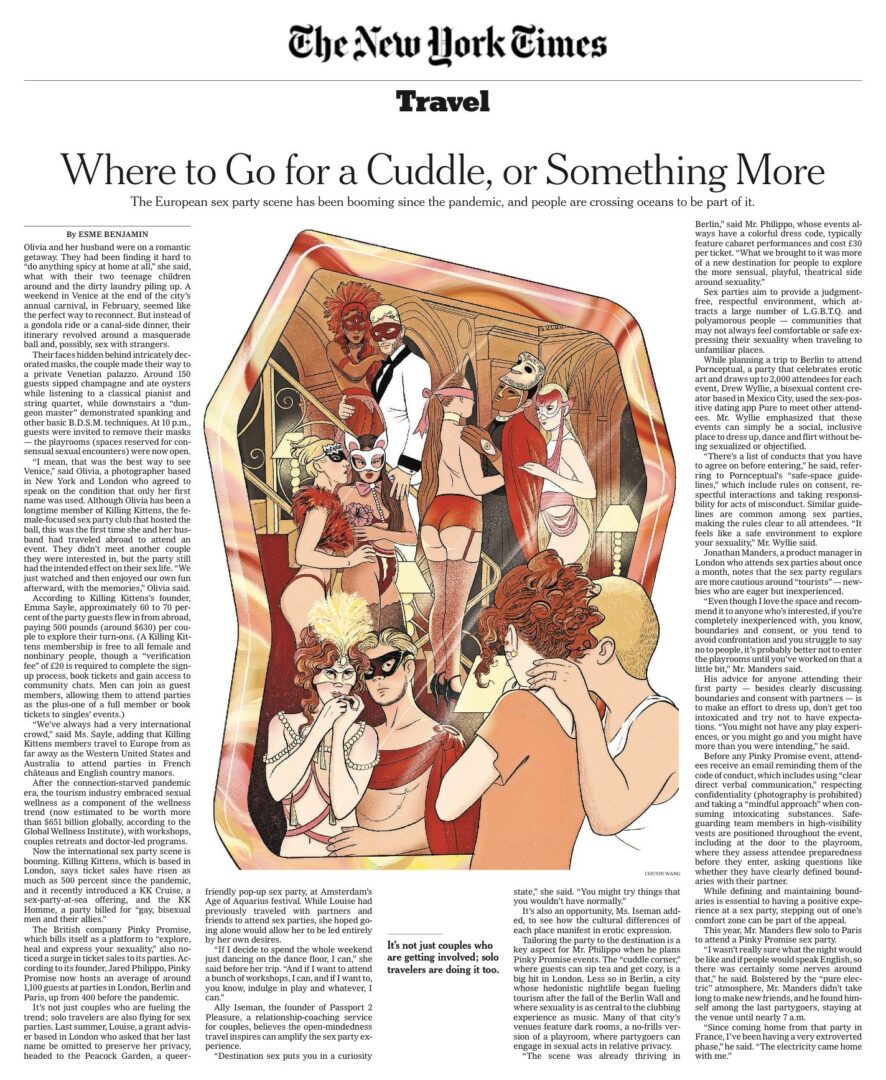
so if you or someone you know deserves recognition please let us know here.

